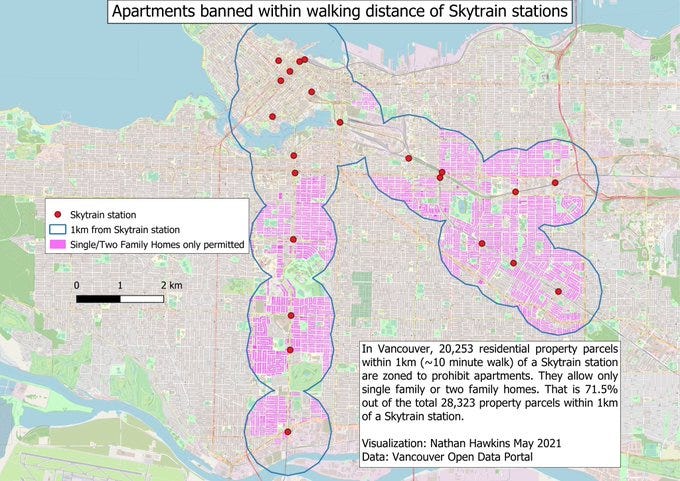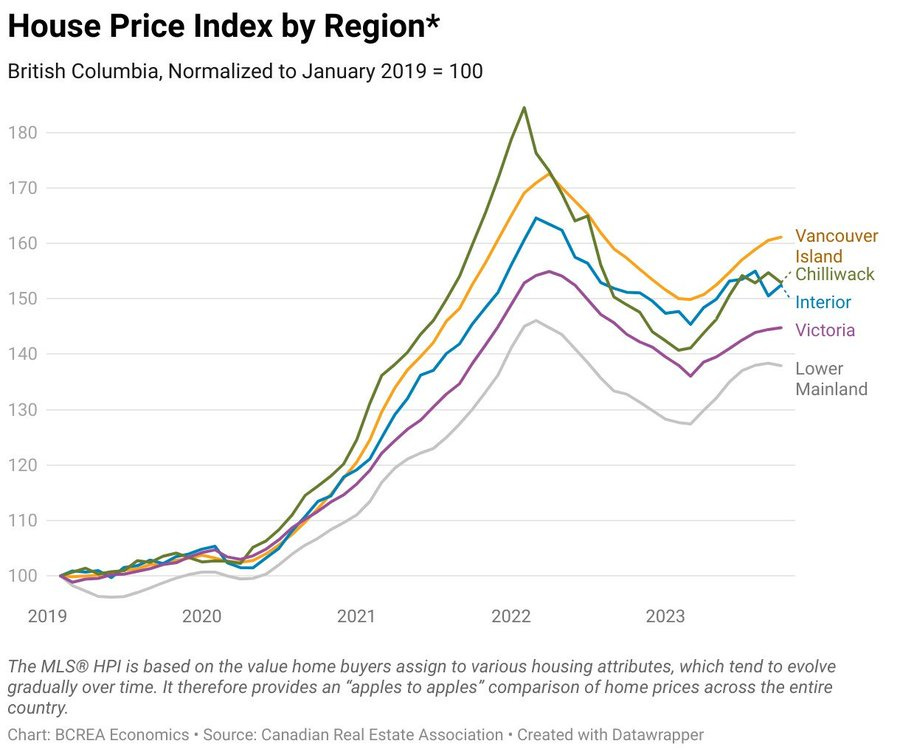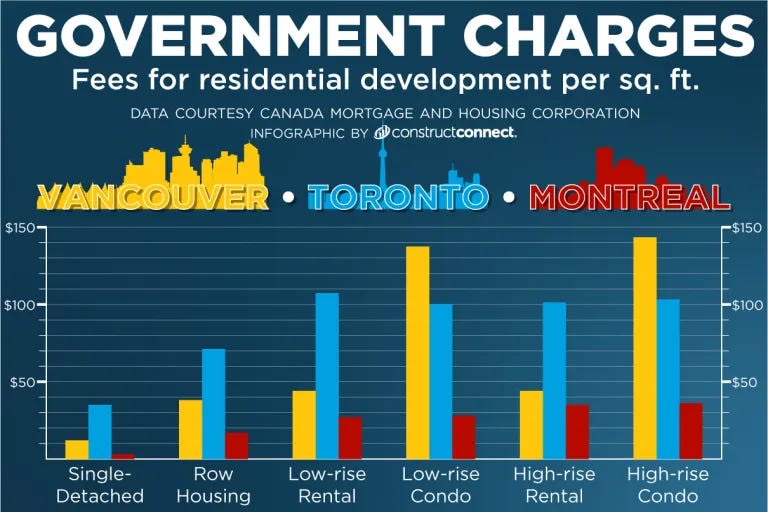Opinion: It's time for BC municipalities to unleash a flood of new housing supply
An op-ed supporting BC's transit-oriented development policy
Published yesterday in the Daily Hive, and also posted as a Twitter thread.
Why do BC’s municipalities need more housing?
David Eby and the BC NDP government are making a concerted push to make it legal to build more housing, the “next level up”: three- and four-plexes in residential neighbourhoods, apartment buildings within walking distance of rapid transit and major bus exchanges. We need to build a lot more housing over the next 10 years or more, so that housing in BC will no longer be as scarce and expensive as it is today.
Why are things so bad? Housing in the Vancouver and Victoria metro regions has been scarce and expensive for a long time, but since Covid and the sudden massive surge in remote work, it’s gotten much, much worse. People working from home need more space, so they’re less willing to have roommates, and willing to pay more for a place with more space. We have less need for office space, and more need for residential space. This isn’t going to unwind itself.
The housing shortage is now affecting communities across the entire province. The benchmark price for a house in the Interior is now $800,000, requiring a household income of $160,000/year to be affordable.
Prices reflect scarcity. When we don’t have enough housing to keep up with jobs, the result is prices and rents rising to unbearable levels to push people out, so those remaining match the limited supply of housing. High housing costs lower our real incomes, making us poorer and worse off. Younger people especially are being crushed and driven out by the high cost of housing, all the way up the income scale.
Why is it so difficult to build more housing in BC?
You need municipal permission to build. Of course you need land, labour and materials, and loans, but municipal permission is very difficult and expensive to get. Over the 10 years from 2011 to 2020, the city of Vancouver alone negotiated to take $2.5 billion (2020 dollars) in Community Amenity Contributions, over and above charges to pay for water and sewer infrastructure upgrades. Incentives for municipal governments are backwards: the worse the housing shortage gets, the more money they can collect.
BC desperately needs more housing in places where there’s lots of jobs. People move where the jobs are, whether that’s in Vancouver or Terrace, and we have a severe mismatch between housing and jobs: we’re not building enough housing to keep up. Vacancy rates are near zero.
Housing is a ladder: it’s all connected. Housing higher on the ladder is more spacious, secure, and expensive. Housing lower on the ladder is more crowded, insecure, and less expensive. When we decide not to build a small apartment building because it would have an impact on neighbourhood character, the people who would have lived there don’t vanish into thin air. They move down the ladder, competing with other people for existing housing. The result is trickle-down evictions, everyone living in worse housing for their income, and tremendous pressure on people near the bottom of the ladder. (A terrifying quote: “Shelters are gentrifying.”)
Given this dire and worsening situation, we need action.
How will more housing help?
New housing frees up older housing. Any additional housing that we can build will help, whether it’s market housing or social housing, student housing or seniors housing. Whenever there’s a new six-storey rental building with 100 apartments, that’s 100 renter households who aren’t competing with everyone else for the limited supply of existing rentals and putting more pressure on people to move down the housing ladder.
The 1970s-era “small is beautiful” ideal is lovely, but unsustainable. We all depend on the healthcare system, for example. When housing costs are sky-high, and the only people who can afford to live in a community are older homeowners who moved there and bought a place more than 20 years ago, where are nurses and even doctors going to live?
—
Russil Wvong is a software developer and housing advocate who lives in Vancouver. He writes a daily newsletter at morehousing.ca.





